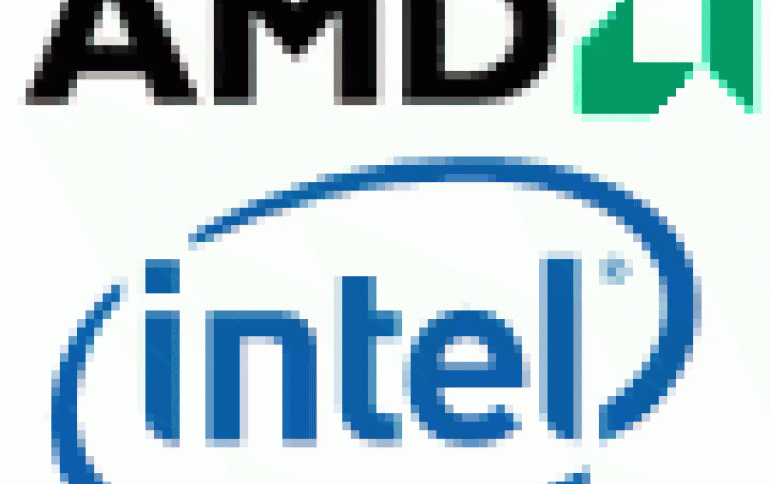
Intel Could Probe AMD's Spin Off Plans
Intel claims that AMD's move t
Intel said on Thusday that was ready to defend its patents and that was evaluating whether a new manufacturing business spun out of AMD could end the cross-licensing agreement between the firms.
On Tuesday, AMD announced plans to spin off its manufacturing operations into a separate company tentatively called The Foundry. According to the plan, AMD would offer the Foundry the exclusive right to manufacture chips for AMD and provides access to intelectual property related to the manufacturing process of the chips. The plan would let struggling AMD rid itself of the financial burden of running fabrication plants and provides an influx of cash from its partner in the deal, Advanced Technology Investment Co. (ATIC).
But Intel spokesman Chuck Mulloy said that AMD and Intel have a patent cross-licensing agreement under which AMD pays royalties to Intel.
"Intel has serious questions about this transaction as it relates to the license and will vigorously protect Intel's intellectual property rights," Mulloy said on AMD's announcement.
On the other hand, AMD defends itself and claims that it has already paid attention to the restrictions in the company's various licensing agreements when making plans for the spin-off.
Intel has many reasons to watch AMD's moves since once the plan will proceed, AMD comes back stronger financially while they they still partially own their fab operations. Intel would have to enter into a pure design race with AMD and lose the advantage of strong manufacturing capacity, which has been a major push for Intel for the last two years.
On Tuesday, AMD announced plans to spin off its manufacturing operations into a separate company tentatively called The Foundry. According to the plan, AMD would offer the Foundry the exclusive right to manufacture chips for AMD and provides access to intelectual property related to the manufacturing process of the chips. The plan would let struggling AMD rid itself of the financial burden of running fabrication plants and provides an influx of cash from its partner in the deal, Advanced Technology Investment Co. (ATIC).
But Intel spokesman Chuck Mulloy said that AMD and Intel have a patent cross-licensing agreement under which AMD pays royalties to Intel.
"Intel has serious questions about this transaction as it relates to the license and will vigorously protect Intel's intellectual property rights," Mulloy said on AMD's announcement.
On the other hand, AMD defends itself and claims that it has already paid attention to the restrictions in the company's various licensing agreements when making plans for the spin-off.
Intel has many reasons to watch AMD's moves since once the plan will proceed, AMD comes back stronger financially while they they still partially own their fab operations. Intel would have to enter into a pure design race with AMD and lose the advantage of strong manufacturing capacity, which has been a major push for Intel for the last two years.





















